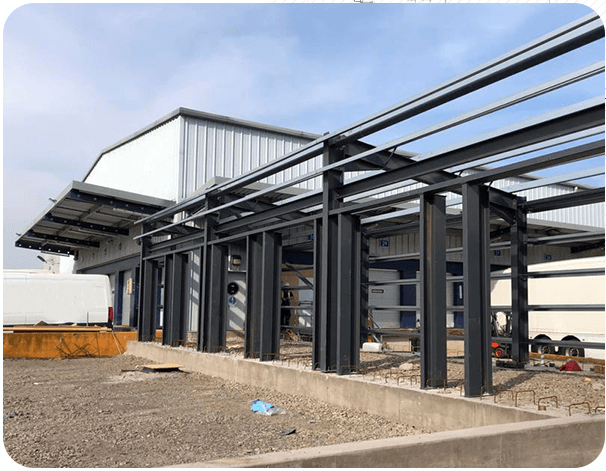In the world of real estate and business, commercial units play a pivotal role. These spaces are designed for business activities, ranging from retail stores to office spaces, and are crucial for the economy. This article delves into the nuances of commercial units, exploring their types, benefits, considerations for investment, and the current market trends.
Types of Commercial Units
Commercial units come in various forms, each serving a unique purpose. The primary types include:
Retail Spaces
Retail spaces are designed for businesses that sell goods directly to consumers. These can be standalone shops, spaces within shopping malls, or even large retail complexes. Examples include clothing stores, supermarkets, and specialty shops.
Office Spaces
Office spaces cater to businesses that require a place for administrative and professional work. These units can range from small offices for startups to large floors in skyscrapers for multinational corporations. Co-working spaces also fall under this category, providing flexible options for freelancers and small businesses.
Industrial Units
Industrial units are used for manufacturing, warehousing, and distribution purposes. These spaces are typically located in industrial zones and are designed to handle heavy machinery and large volumes of goods. Examples include factories, distribution centers, and logistics hubs.
Hospitality Units
Hospitality units encompass spaces used for lodging, dining, and entertainment. Hotels, restaurants, and bars are typical examples. These units are strategically located in areas with high foot traffic, such as city centers and tourist destinations.
Healthcare Units
Healthcare units are specialized spaces designed for medical services. Clinics, hospitals, and diagnostic centers fall into this category. These units require specific infrastructure to support medical equipment and patient care.
Benefits of Investing in Commercial Units
Investing in commercial units can offer numerous advantages, making it an attractive option for many investors. Some of the key benefits include:
Higher Rental Yields
Commercial properties generally offer higher rental yields compared to residential properties. Businesses are often willing to pay premium rents for well-located and well-maintained spaces, leading to a higher return on investment.
Longer Lease Terms
Commercial leases tend to be longer than residential leases, often ranging from 3 to 10 years or more. This provides a stable and predictable income stream for property owners, reducing the risk of frequent tenant turnover.
Tenant Responsibilities
In many commercial leases, tenants are responsible for the maintenance and upkeep of the property. This can significantly reduce the operational burden and costs for landlords.
Appreciation Potential
Commercial properties, especially those in prime locations, tend to appreciate over time. Strategic investments in growing business districts can lead to substantial capital gains.
Considerations for Investing in Commercial Units
While the benefits are enticing, investing in commercial units requires careful consideration and due diligence. Here are some key factors to keep in mind:
Location
The location of a commercial unit is critical to its success. Properties in high-traffic areas, near public transport, and in established business districts tend to attract more tenants and command higher rents.
Market Trends
Understanding market trends and economic conditions is essential. Investors should keep an eye on factors like local business growth, vacancy rates, and rental trends to make informed decisions.
Tenant Quality
The quality of tenants can impact the stability of rental income. Conducting thorough background checks and securing leases with reputable businesses can mitigate the risk of default and vacancy.
Legal and Regulatory Compliance
Commercial properties are subject to various regulations, including zoning laws, building codes, and safety standards. Ensuring compliance with these regulations is crucial to avoid legal issues and fines.
Financing Options
Commercial property financing can be more complex than residential property financing. Investors should explore different financing options and work with financial advisors to structure deals that align with their investment goals.
Current Market Trends
The commercial real estate market is constantly evolving, influenced by economic shifts, technological advancements, and changing business needs. Some current trends include:
Rise of E-commerce
The growth of e-commerce has increased demand for industrial units, particularly warehouses and distribution centers. Businesses are seeking spaces that can support efficient logistics and fulfillment operations.
Flexible Workspaces
The trend towards remote work and flexible office arrangements has boosted the popularity of co-working spaces. These spaces offer businesses the flexibility to scale up or down based on their needs.
Sustainability Initiatives
Sustainability is becoming a priority for many businesses, leading to increased demand for green buildings and eco-friendly commercial units. Properties with energy-efficient features and sustainable practices are more attractive to tenants. Explore Further to find out how green building practices can enhance your property’s appeal and value.
Mixed-Use Developments
Mixed-use developments that combine residential, commercial, and recreational spaces are on the rise. These developments offer convenience and a vibrant community atmosphere, attracting both residents and businesses.
Technological Integration
Smart buildings equipped with advanced technology for security, energy management, and connectivity are gaining traction. These features enhance operational efficiency and tenant satisfaction.
Conclusion
Commercial units are a vital component of the real estate market, offering diverse opportunities for businesses and investors alike. Understanding the different types of commercial units, their benefits, and the factors to consider when investing can help investors make informed decisions. Staying abreast of market trends and adapting to changing demands will be key to success in this dynamic sector. Whether you are a seasoned investor or a newcomer, the world of commercial units holds immense potential for growth and profitability.



